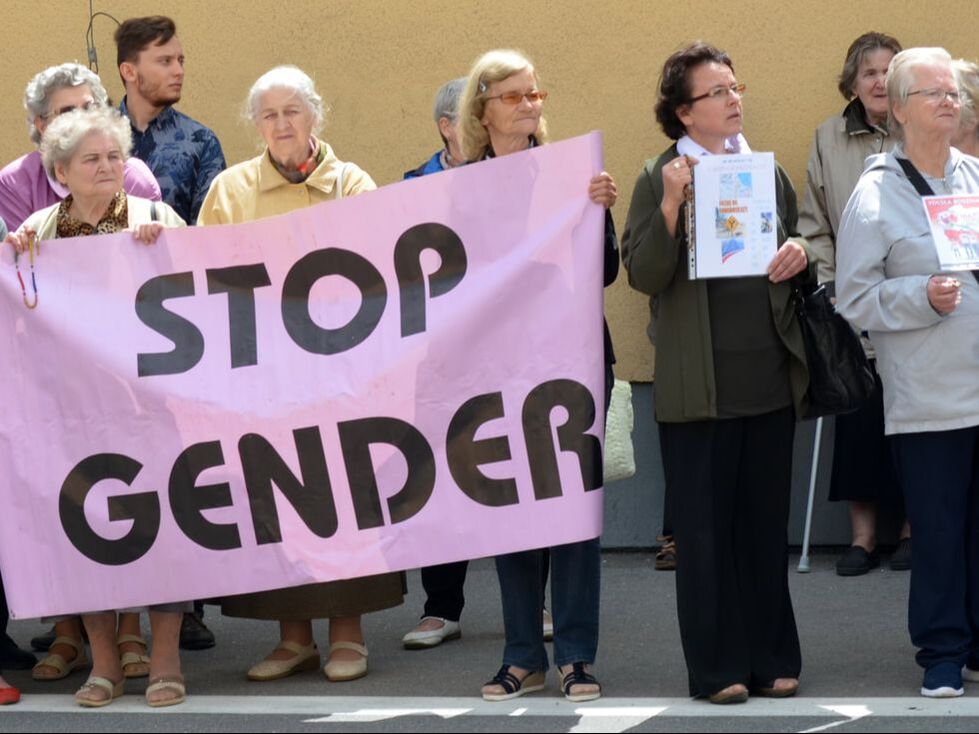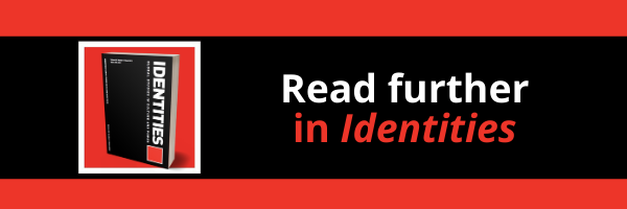|
|
|
Concocted by the conservative quarters of the Vatican, the disparaging term 'gender ideology' has been taken up not only by the radical right, but also by some centre-left, liberal commentators, seemingly unconcerned with the concept's troublesome history. One notable example is the Economist's last year article denouncing the so-called 'trans ideology', titled A backlash against gender ideology is starting in universities. In my Identities article, 'Framing ‘gender ideology’: religious populism in the Croatian Catholic Church', I consider the provenance of how the 'gender ideology' frame was utilized by the Catholic church in Croatia – one of the earliest cases of widespread anti-gender mobilization in Europe.
Having gone through a double transition to a capitalist liberal democracy, the revived religious nationalism in Croatia competed with liberal values from the 'free Western world'. The generous Vatican agreements signed in the late '90s by the authoritarian, right-wing government provided fertile ground for a blossoming of Catholic evangelization and proliferation of lay activism. In contrast to current research on the populist radical right which demonstrates the manipulation of religion committed by political actors, I identify factions of the Church itself as populist entrepreneurs. Polarizing populist discourse is traced back to Pope John Paul II's warnings against 'the war of the powerful against the weak', and connected to newer doctrinal, papal writings on issues of gender, ecology and politics.
Elements of Catholic doctrines such as the emphasis on morality, the battle of good and evil, sin and virtue, correspond perfectly with populist discourse. Refering to Vatican doctrines on the 'structures of sin', the 'culture of death', local clergy in Croatia pits the alienated elites and media against the ethnically defined people and rearticulates the historical role of the Church as the protector of the nation. Arguably, this enables parts of the clergy to act as a populist challenger of the mainstream centre-right ruling party, HDZ (Croatian Democratic Union). The 'gender ideology' frame is utilized against 'deviant' sexual minorities allegedly colluding with cosmopolitan elites to opress the Croat people:
Their decadent, weird and indescribable ideas have flooded our institutions and laws – not an accidental, but a carefully planned action. Most of these international institutions and their Croatian followers are anti-family, anti-children, anti-tradition and finally, anti-Catholic. They want us to reject fundamental and obvious truths and accept their perverted ideas by force, under the command of faceless Eurocrats. (Batarelo 2017)
It is essential to point out that religions are not inherently characterised by populist or (radical) right-wing ideology. However, they provide certain specific resources for articulating populism which are used by different actors participating in the political arena. Given the universality of Catholicism, explaining when and why churches decide to engage in populist and nationalist politics is all the more crucial. Croatia is representative of countries where religion and ethnicity are intertwined, and there is a history of collaboration between far-right and religious actors such as Spain and Poland, but also Romania and other Orthodox countries. At best, this study calls for further investigations into religious populism as a potentially distinctive or specific form of populism. At least, it demonstrates the importance of looking into religious actors as populist entrepreneurs.
Image credit: Silar, CC BY-SA 4.0, via Wikimedia Commons
Blog post by Ivan Tranfić, Scuola Normale Superiore, Italy
Read the Identities article: Tranfić, Ivan. Framing ‘gender ideology’: religious populism in the Croatian Catholic Church. Identities: Global Studies in Culture and Power. DOI: 10.1080/1070289X.2022.2037899
Explore other relevant Identities articles:
Being a ‘terribly Christian Minister’: populism, gender and anti-feminism in Damares Alves’s ministerial performance Imbrications of gender and religion in Nordic radical right populism OPEN ACCESS No populism’s land? Religion and gender in Romanian politics
0 Comments
Your comment will be posted after it is approved.
Leave a Reply. |
|
Explore Identities at tandfonline.com/GIDE |
|
The views and opinions expressed on The Identities Blog are solely those of the original blog post authors, and not of the journal, Taylor & Francis Group or the University of Glasgow.


